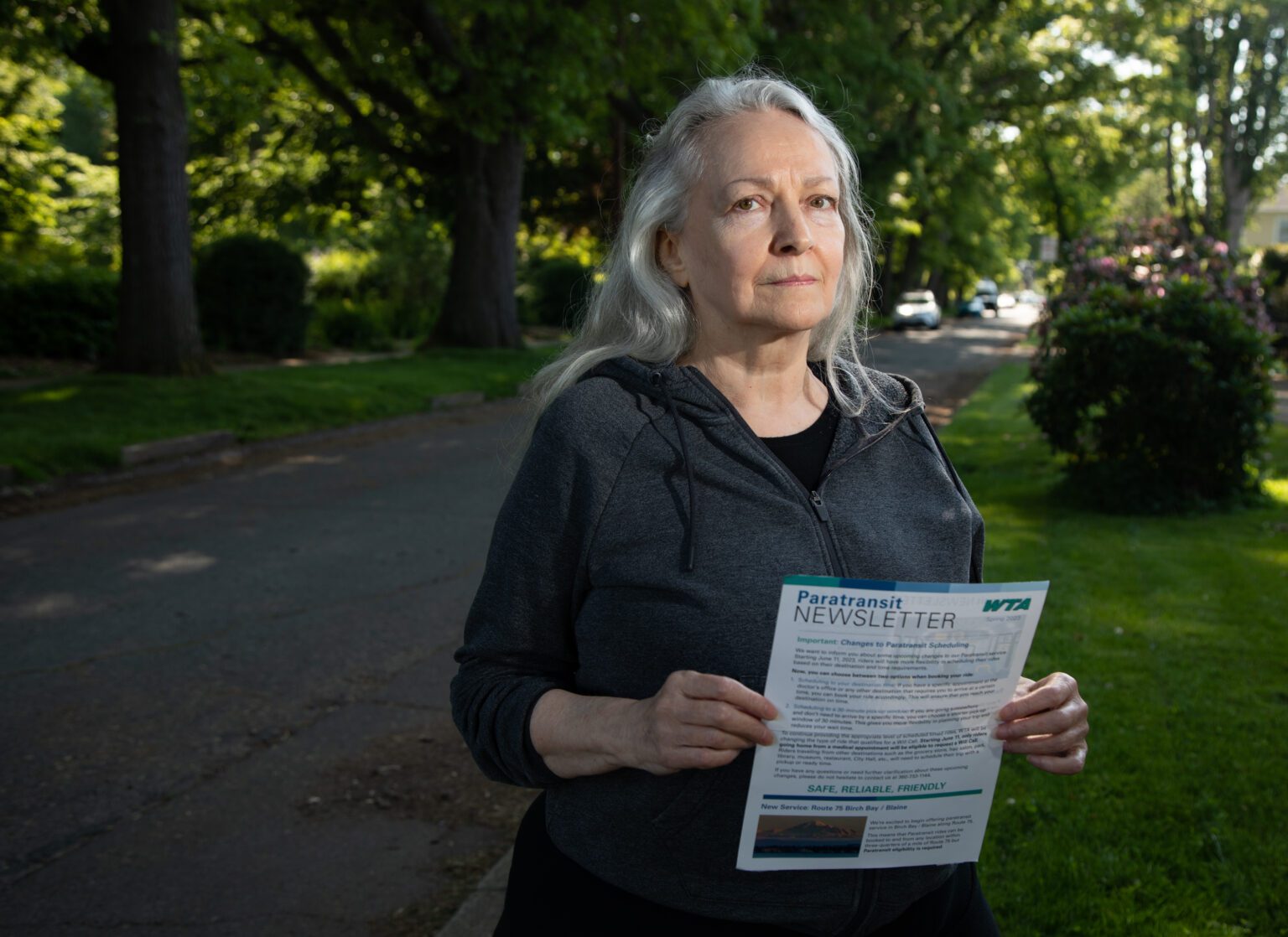Riders with disabilities who use Whatcom Transportation Authority’s paratransit system are upset over a service change made with little notice and no public input.
WTA officials told members of the transit agency’s board in April they would no longer allow paratransit users to call for a pickup after finishing their errands. Such “will-call” service will be limited to medical appointments only, starting June 11.
WTA sent notices to paratransit riders informing them of the change about a month in advance.
Paratransit makes hundreds of trips daily for riders whose disabilities prevent them from using the standard fixed-route buses. About 38% of those trips are will-call, WTA Paratransit Manager Shelly Davis told the board on April 20.
The volume of will-calls has made scheduling untenable, WTA officials said.
“We believe [the change] will have a crucial and positive impact on our paratransit service overall,” WTA Public Information Officer Maureen McCarthy said in an email. “Without it, we were finding it increasingly difficult to provide our riders with efficient, on-time service.”
Also starting June 11, paratransit riders will have two options for non-medical errands: either plan to arrive at their destination by a certain time, or schedule their pick-up time in advance.
Davis pointed out during the board meeting that will-call is not required by the Americans with Disabilities Act, and some paratransit systems don’t offer it at all, or charge a premium price for the service.
Under current WTA rules, riders can request up to four will-call rides a day.
“It’s basically like a string of taxis,” Davis said. “That is not what paratransit service is supposed to be.”
Several riders raised an alarm over the inconvenience the service change will bring. They also noted the decision was made without consulting them.
“This was extremely alarming to me!” a paratransit rider said in an online comment to WTA. “I’d feel like I must hurry and hurt myself with my disability, trying to go fast for fear of not being done on time.”
In a May 18 email, another paratransit user said they were “disappointed that WTA did not collaborate with the disability community on the challenges WTA is experiencing in regards to the will-call system.”
“Perhaps we would have been able to come up with a solution together that is less extreme than eliminating the will-call service entirely,” the rider added in the email.
WTA removed riders’ names from the comments the agency provided for this story, per state public records law.
Linda Joy De Long said in a phone interview she uses paratransit two to four times a week, for medical appointments or trips to the grocer, the library or the post office.
“I think the restrictions on going to the grocery store are ridiculous,” said De Long, 74, who has been using paratransit for the past three and a half years. She and other paratransit users said it’s difficult to predict when a grocery run will be completed.

In response, WTA officials recommend riders pad their errand schedule with additional time, to ensure they are ready when the bus arrives for their trip home.
“No rides are being denied,” Davis told the board on April 20. “It’s just a different kind of ride.”
While the WTA board learned of staff’s decision to eliminate most will-calls at the April meeting, the board did not vote on the change or gather public comment.
Dan Darwin, a non-voting member of the WTA board who represents the local transit union, said WTA should have made this decision with more notice and more involvement from the public.
“Just because something is hard or may have a minor effect on the system does not mean the agency should cease to offer this service … without consent from the board and the public,” Darwin said on April 20. “The agency has offered this type of trip for decades, and our riders have depended on this type of service for their quality of life.”
On May 4, the board voted to consider a broader range of service changes in the future, with more public input, rather than allowing staff to make the changes unilaterally. Darwin pressed the board to reconsider the paratransit change, but his request didn’t gain traction with voting board members.
“I guess I would just say ‘lesson learned’ on this one,” board President Michael Lilliquist said, to conclude the paratransit discussion on May 4.
De Long said she can see why the board had to learn this particular lesson after the fact.
“There’s nobody (on the board) who has a disability,” De Long said. “There’s nobody that’s riding paratransit.”
“I think they need to step up and be more inclusive,” she added, “and not let it happen again.”




